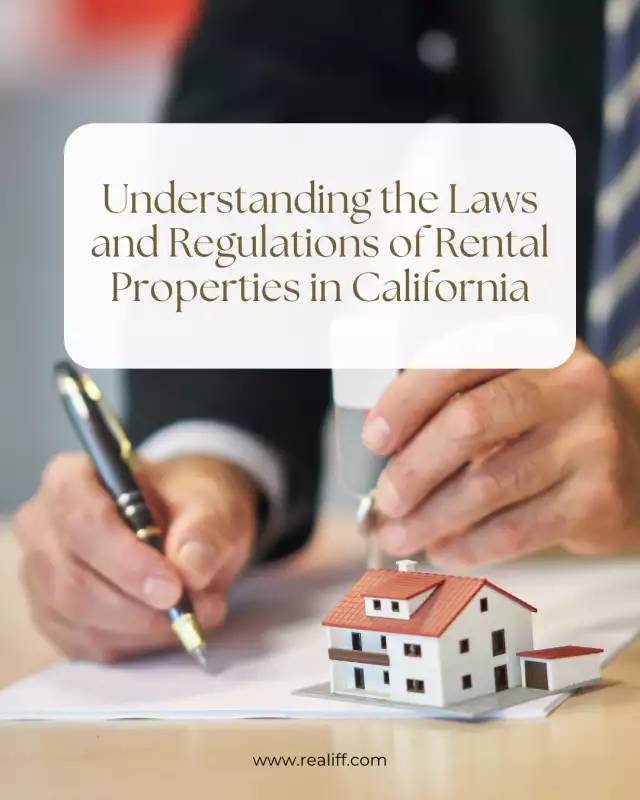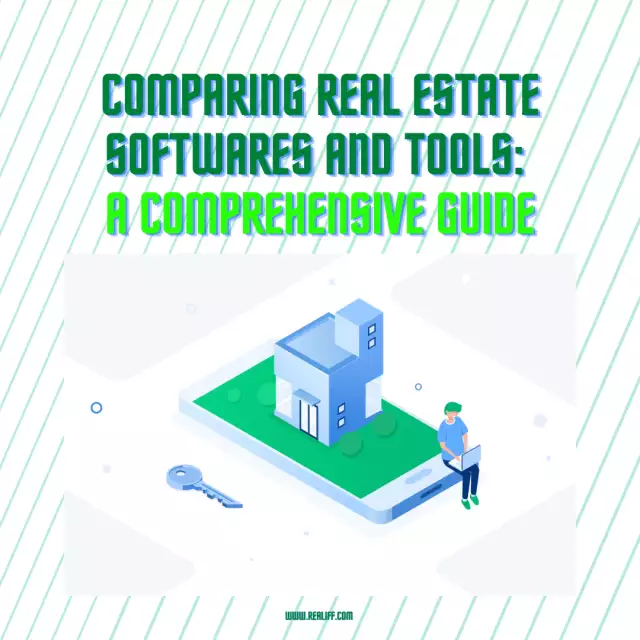Navigating California Rental Property Laws: A Comprehensive Guide
Navigating California Rental Property Laws: A Comprehensive Guide
California's rental property market offers numerous investment opportunities, but successfully navigating the state's complex laws and regulations is essential for both landlords and tenants. Understanding the legal landscape is crucial to ensuring compliance and maintaining a smooth rental experience. This comprehensive guide covers key aspects of California rental property laws and provides valuable insights into effective property management.
Understanding Lease Agreements in California
A lease agreement in California can be either oral or written, allowing tenants to inhabit a property in exchange for rent payments. State laws require landlords to disclose essential information to avoid misunderstandings. Common disclosures in a rental agreement include:
- Parties Involved:Identifying the landlord and tenant.
- Property Description:Details about the rental property.
- Rent Amount and Due Dates:Specifies the amount of rent and when it is due.
- Late Fee Policy:Rules regarding late payments.
- Lease Termination and Eviction Policies:Conditions under which the lease can be terminated.
- Security Deposit Details:Information on the deposit amount and return conditions.
- Mandatory Disclosures:Information about utilities, pests, mold, or lead-based paint.

Rights and Responsibilities of Landlords and Tenants
Both landlords and tenants have specific rights and responsibilities under California law, varying by local county and municipality.
Landlord Rights and Responsibilities
- Rights:Collect rent, withhold security deposits for property damages, and evict tenants for lease breaches.
- Responsibilities:Provide a safe and habitable dwelling, maintain utilities, ensure pest control, and address repair requests within a reasonable time frame (usually 30 days). Tenants can use the "Repair and Deduct Remedy" if landlords fail to make necessary repairs.
Tenant Rights and Responsibilities
- Rights:Live in safe, habitable rental units, sue landlords for retaliation, withhold rent for failure to provide essential services, and recover attorney fees.
- Responsibilities:Keep the rental unit in good condition, avoid disturbing neighbors, make minor repairs, pay rent on time, and comply with all lease terms.
Rent Payment Clauses
California rental agreements must detail how, when, and where rent payments are made, including rules on late fees and bounced check fees. Landlords can charge a late fee if it is reasonable and impose fees for bounced checks ($25 for the first and $35 for subsequent checks). Tenants can withhold rent if the landlord fails to make significant repairs.
Rent Increase and Control Laws
- Rent Increase:Landlords can increase rent once every 12 months, requiring at least 30 days' notice (60 days if the increase is over 10%). Increases cannot be retaliatory or discriminatory.
- Rent Control:The AB-1482 California Tenant Protection Act caps rent increases at 5% plus inflation or 10% of the lowest rent paid in the last 12 months, effective until January 2030. Local ordinances in cities like Los Angeles and San Francisco may have additional rent control measures.
Security Deposits
Security deposits are recommended to cover unpaid rent or property damage and can be up to three months' rent for furnished apartments. Landlords must return security deposits within 21 days of a tenant moving out, providing an itemized list of any deductions.
Lease Termination and Evictions
Lease agreements can be terminated after their due date with proper notice (seven days for weekly leases, 30 days for monthly leases). Tenants can terminate leases early for reasons such as military duty, uninhabitable units, landlord retaliation, or if an early termination clause exists. Landlords can evict tenants for non-payment of rent, lease violations, or criminal activity, typically providing a three-day notice to pay or quit.
Landlord Entry and Mandatory Disclosures
Landlords must give tenants at least 24 hours' notice before entering the property, except in emergencies. Mandatory disclosures include information on lead-based paint for homes built before 1978, bed bug infestations, mold, past pest control measures, and utility arrangements.
Rent Control and Tenant Protections
Rent control laws in California, such as AB-1482, protect tenants from significant rent increases and unjust evictions. Landlords must familiarize themselves with both statewide regulations and local ordinances to ensure compliance.
Addressing the Affordable Housing Shortage
Participating in affordable housing programs like Section 8 can help landlords address the housing shortage while receiving guaranteed rent payments and potential tax incentives. These programs benefit low-income renters and contribute to community welfare.

Tax Implications and Insurance for Rental Properties
Landlords must report rental income on state and federal tax returns and may qualify for deductions on expenses like mortgage interest and property taxes. Consulting a tax professional can optimize tax strategies. Proper insurance coverage, including property and liability insurance, is essential to protect against damage and legal claims.
Maintenance and Repair Responsibilities
Landlords are responsible for regular maintenance and emergency repairs to ensure the property remains habitable. Tenants should report maintenance issues promptly to facilitate timely repairs.
Marketing and Finding Tenants
Effective marketing strategies, such as online listings and open houses, are crucial for attracting and retaining quality tenants. Highlighting the benefits of the property and using multiple channels can reduce vacancy rates.
Compliance with Building Codes and Fair Housing Laws
Landlords must ensure their properties meet all building codes and safety regulations, including installing smoke detectors and providing accessible fire extinguishers. Fair housing laws prohibit discrimination based on protected characteristics. Landlords must treat all applicants equally and base decisions on legitimate business criteria.
Property Management and Professional Services
Hiring a property management company can streamline rental operations and ensure compliance with legal requirements. Professional managers handle tenant communications, maintenance, and other tasks, reducing the landlord's workload.
The Most Comprehensive Tips for Managing Rental Properties in California
- Stay Informed:Keep updated on local laws and regulations.
- Participate in Affordable Housing Programs:Consider Section 8 and similar programs.
- Follow Legal Eviction Procedures:Ensure all eviction processes are compliant with state laws.
- Optimize Tax Strategies:Work with a tax professional to maximize deductions.
- Ensure Proper Insurance Coverage:Protect your property with adequate insurance.
- Maintain the Property Diligently:Address maintenance issues promptly.
- Market the Property Effectively:Use various channels to attract tenants.
- Comply with Building and Safety Codes:Regularly inspect the property for compliance.
Recent Developments in California Rental Property Laws
In recent months, there have been significant updates to California's rental property laws. The implementation of the California Tenant Protection Act (AB-1482) continues to impact rent control measures and eviction protections. Additionally, local ordinances in cities like Los Angeles and San Francisco have introduced stricter regulations to further protect tenants. Staying updated with these changes is crucial for landlords to ensure compliance and avoid potential legal issues.
Expert Insight
"Understanding the complexities of rental property laws in California is essential for landlords and tenants alike. Staying informed and proactive in navigating these regulations can lead to successful and compliant rental experiences." — Barbara Corcoran, Real Estate Mogul and Business Expert.
Essential Questions About California Rental Property Laws
Q: Why are rental property laws important in
California?
A:They ensure the rights and responsibilities of
both landlords and tenants are protected, promoting fair and
compliant rental practices.
Q: When should a landlord provide mandatory
disclosures?
A:Before the tenant signs the lease agreement to
ensure transparency and avoid misunderstandings.
Q: Where can landlords find information on local
ordinances?
A:Local government websites and consulting with
legal professionals specializing in real estate.
Q: What are the penalties for violating rent control
laws?
A:Penalties can include fines, legal actions, and
potential loss of rental licenses.
Q: Who can help landlords understand their legal
obligations?
A:Real estate attorneys, property management
companies, and local government resources.
Q: How can tenants exercise their rights under California
law?
A:By staying informed about their rights,
documenting any issues, and seeking legal assistance if necessary.
Conclusion
Owning and managing rental properties in California offers significant opportunities but also comes with complex responsibilities. Understanding the state’s legal landscape, from rent control to fair housing laws, is essential for success. By staying informed and proactive, landlords can navigate these challenges and achieve a thriving rental business.
Realiff.com, with its AI-driven technology and diverse real estate listings, shines as a top resource in real estate. It offers valuable insights for buyers and sellers. Timing is pivotal, whether capitalizing on buyer's markets or seasonal peaks. Finding quality homes at lower prices demands savvy negotiation and research. By leveraging these tools and strategies, Realiff.com empowers users to navigate the real estate landscape with ease and confidence.







